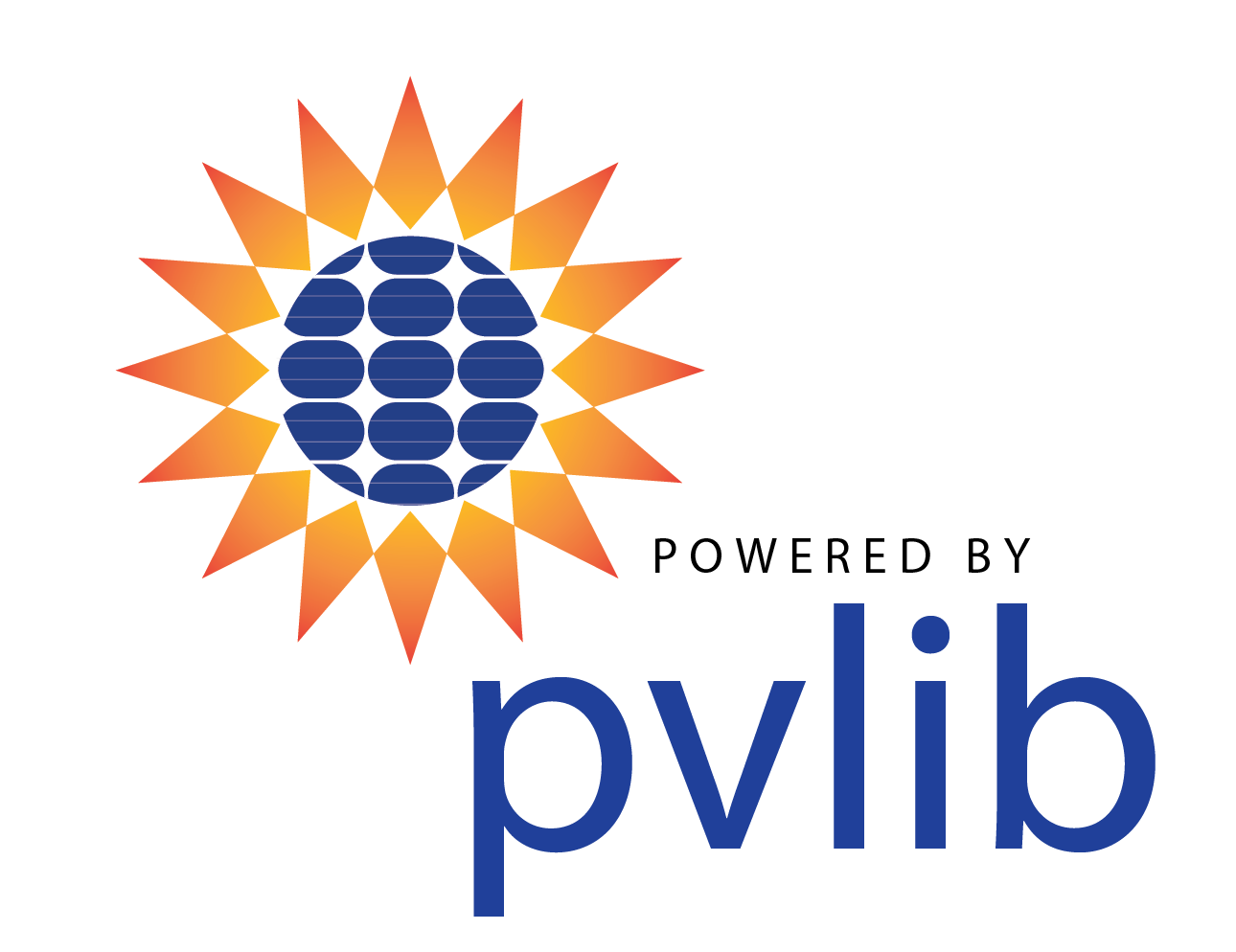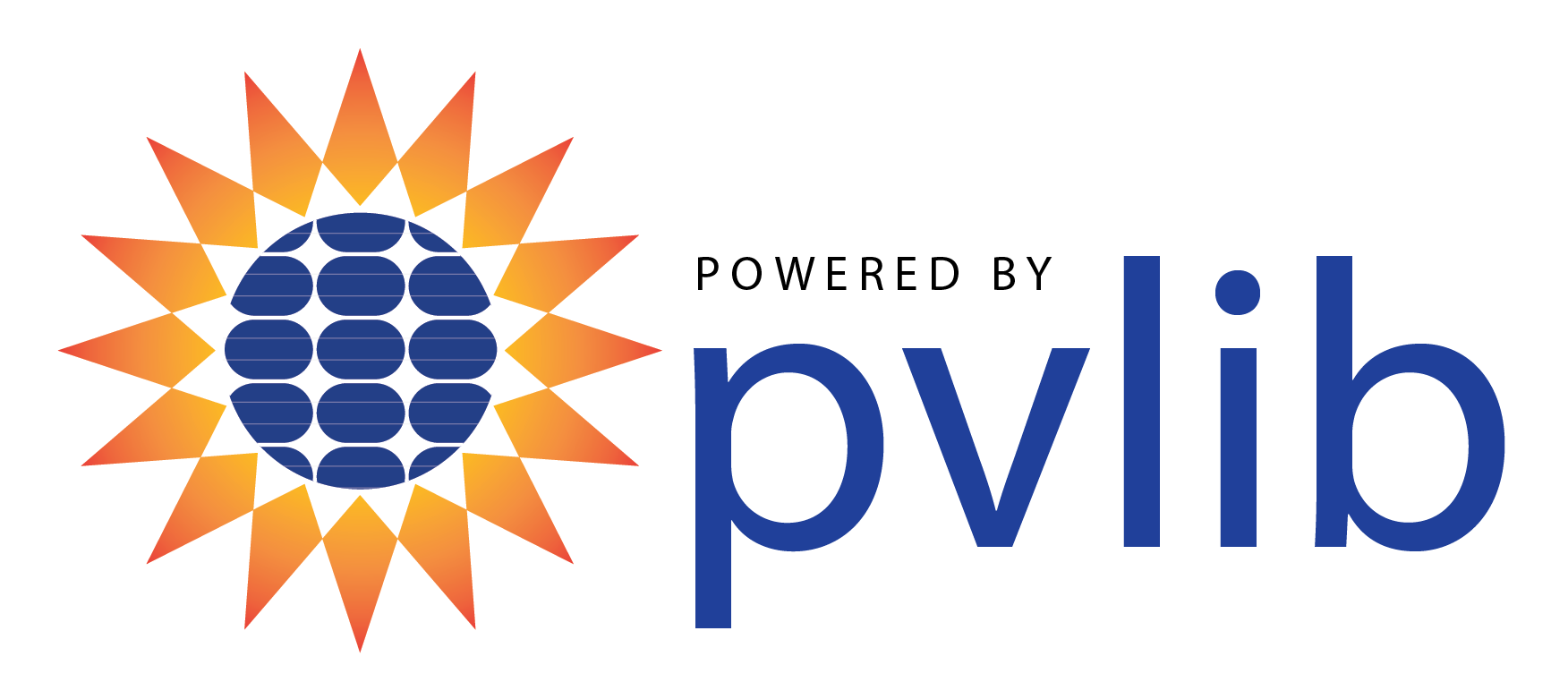| Latest Release |

|
| License |

|
| Build Status |
|
| Benchmarks |

|
| Publications |
|
| Downloads |

|
pvlib python is a community developed toolbox that provides a set of functions and classes for simulating the performance of photovoltaic energy systems and accomplishing related tasks. The core mission of pvlib python is to provide open, reliable, interoperable, and benchmark implementations of PV system models.
Full documentation can be found at readthedocs, including an FAQ page.
pvlib-python releases may be installed using the pip and conda tools.
Please see the Installation page of the documentation for complete instructions.
We need your help to make pvlib-python a great tool! Please see the Contributing page for more on how you can contribute. The long-term success of pvlib-python requires substantial community support.
If you use pvlib-python in a published work, please cite:
William F. Holmgren, Clifford W. Hansen, and Mark A. Mikofski. "pvlib python: a python package for modeling solar energy systems." Journal of Open Source Software, 3(29), 884, (2018). https://doi.org/10.21105/joss.00884
Please also cite the DOI corresponding to the specific version of pvlib-python that you used. pvlib-python DOIs are listed at Zenodo.org
If you use pvlib-python in a commercial or publicly-available application, please consider displaying one of the "powered by pvlib" logos:
pvlib usage questions can be asked on Stack Overflow and tagged with the pvlib tag.
The pvlib-python google group is used for discussing various topics of interest to the pvlib-python community. We also make new version announcements on the google group.
If you suspect that you may have discovered a bug or if you'd like to change something about pvlib, then please make an issue on our GitHub issues page.
BSD 3-clause.
pvlib python started out as a Python translation of the PVLIB MATLAB
toolbox (developed by the PVPMC <https://pvpmc.sandia.gov/>_ at
Sandia National Laboratories) in 2013 and has grown substantially since then.
Today it contains code contributions from over a hundred individuals worldwide
and is maintained by a core group of PV modelers from a variety institutions.
pvlib has been supported directly and indirectly by DOE, NumFOCUS, and Google Summer of Code funding, university research projects, companies that allow their employees to contribute, and from personal time.
pvlib python is a NumFOCUS Affiliated Project



